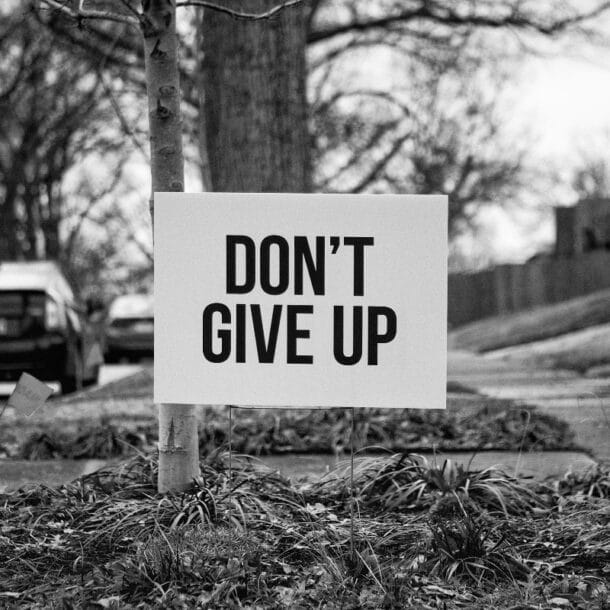
The Benefits of Gender-Specific Care
Substance use disorder (SUD) is experienced differently by each person who goes through it, each person has their own path and patterns. What is patently true though, is that different genders experience things differently. Society puts different expectations on men and women, makings their life experiences different from each other, including their experiences with substances.
Even though the choice of substance is different between men and women, men tend to use alcohol and marijuana primarily, while women are more likely to use prescription drugs for non-medical reasons. Addiction affects people differently according to their gender. For this reason, gender-specific treatment programs have several advantages. The differences between men and women are so significant that they often require specific treatment types and opportunities to achieve long-term success in recovery. Recovery and positive outcomes are increased with individualized care which is gender-specific.
Reasons Men Start to Use Substances
The reasons men start to use substances are very different from women’s reasons. Their patterns of abuse are also different. Men can have a family history of substance abuse; however, it is not typically why they use it. Men very often have co-occurring mental health disorders, such as generalized anxiety disorder (GAD) or depression. So, the reasons to start to use substances typically are:
- Benefits they hope to gain from the substance such as being more social, improved sexual performance, or drive
- Peer acceptance
- Social bonding
- Celebration
- Enhance positive emotions
- Inability to express and process emotions
Societal Expectations of Men Which Affect Substance Use
The expectations that society puts on men are very different than the expectations which are put on women. Men understand the pressures and expectations they feel and in seeking out gender-specific care, they have a place where they can safely speak about and sort out their experiences and emotions in a peer-supported environment. Masculinity is an ideology that defines what it means to be a man, and most men use these definitions to measure their worth. These definitions also influence what role males play in society. Some expectations that are placed on men by society are:
- Stigma about men expressing emotion, grief, or sadness
- Manhood rituals like excessive substance use; particularly alcohol
- Suppression of insecurities of any kind
- Proof of masculinity by aggression, and/or fearlessness
- Expectations of playing the dominant role in female relationships
Factors in Male Substance Abuse
Male substance abuse does not just vary in causes but also effects. Aspects of male substance abuse include:
- Using alcohol as well as other drugs more frequently and in bigger quantities
- Binge drinking
- Being two to five times more likely to develop SUD
- Enjoying a type of “rite of passage” through a first drink and bingeing
- Male bonding through substance use
- Physically processing substances differently
Screening for Substance Abuse Is Different for Men
During intake, it is important for men to have some sensitivity placed on their reluctance to share until they feel safe. Men are very much not inclined to share what they feel are shortcomings or be vulnerable in any way. It is important to consider gender and how it may affect behavior, even with healthcare professionals. Problems during screening can include:
- Men underreporting their problems due to traditional gender roles
- Men’s mental health disorders and depression appearing differently
- Men’s recovery journey affecting how their history and struggles are presented
- Men being slower to trust and truly share
- Men struggling to verbalize their illness or troubles
- Men experiencing shame and an inability to express their feelings or situation
Men Have Different Treatment Needs
Society expects men to be completely self-sufficient, stoic, competitive, and sometimes even aggressive. Because of these expectations, men have trouble expressing themselves or being self-aware. Men also largely do not analyze problems, preferring to hope for the best. How are men’s needs different?
- Men feel ashamed to seek treatment because of the expectations they put on themself and that society puts on them
- Men take much longer to establish a rapport with staff and peers
- Men are uncomfortable feeling vulnerable
- Men can be combative when they are forced into relationships
- Men are very cautious and suspicious of treatment
- Men feel weak for seeking treatment
- Men fear being judged
The Benefits of Gender-Specific Care
Men find that they benefit in several ways from having a gender-specific program. Men do better in treatment and recovery when they have a program customized to their gender and specific individual needs. Some benefits of gender-specific care for men include the following:
- Men can more easily express themselves to other men they feel understand or share experiences.
- Men feel more comfortable around and can bond more easily with other men.
- Men benefit from relatable peer support.
- There is a lack of distractions or sexual tension.
- Being with only men opens communication about gender, cultural, and social pressures.
- Group activities can be gender-specific which helps men have common ground.
There is no doubt that gender-specific care has many advantages. When only one gender is involved, much less time is devoted to gender issues. There are far fewer distractions which allow for more focused progress. Men can focus entirely on their own health and can relate to each other’s experiences. Group activities are more comfortable, and safe, and allow true peer support. Gender-specific care provides treatment to address men’s needs, which is a huge benefit. It allows for honesty, making individual treatment plans more specific and effective.
Gender-specific recovery can provide men with the tools to succeed in treatment and address issues that affect men differently than women or mixed groups. Substance use disorder creates different issues for different genders.
Healing Pines Recovery provides treatment in a small intimate group. Keeping the group small gives specialists who understand the importance of personalizing each treatment plan and working together with each client to facilitate success. Society puts very different expectations on men. Gender-specific treatment attends to men’s physiological, psychological, and emotional needs, specifically, in a very supportive way.
Keeping the group small and gender-specific allows men to work through their needs and choose the best ways to succeed at health; in an integrated environment that provides new ways to explore themselves. If you think of being surrounded by the Colorado wilderness in an integrated and intimate program, call Healing Pines Recovery at 720-575-2621.
Paul Leafstedt
Paul was born and raised in the beautiful state of Colorado. He went to college in California at CAL Poly Pomona, majoring in Mechanical Engineering. Being a person in recovery and always finding fulfillment in helping others succeed, Paul co-founded a treatment center in California with 4 other partners. Paul came back to Colorado to continue his journey in the field of addiction, and to share his vision for Healing Pines Recovery. “Colorado is such a magical place for me, its natural beauty and peace lend itself for the perfect environment to connect with yourself and others. Healing Pines is different, it’s real, you can feel it. What you see is what you get here. This is a safe place to dig deep and be vulnerable, to re-discover yourself, what the world has to offer and what you have to offer the world.”Begin Your Journey & Escape Addiction
The first step can be the hardest. Fill out the form or call us at 720-575-2621. You will be connected with a Healing Pines Recovery specialist who can answer your questions and help you get started.
Let Us Help You
Speak to Someone Right Now






